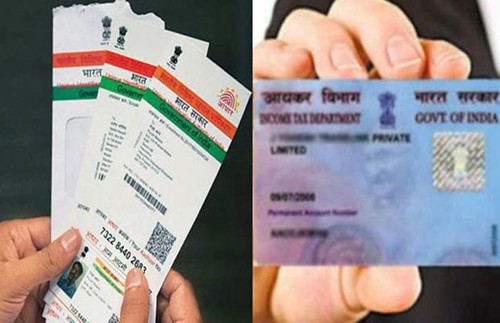Bombay High Court: Aadhaar, PAN or Voter ID Not Proof of Citizenship, Bail Denied to Accused

Introduction
The Bombay High Court refused to grant bail to a man accused of being a Bangladeshi national who allegedly entered India illegally and fraudulently obtained Indian identity documents.
The Court made it clear that possession of documents such as Aadhaar, PAN or Voter ID does not, on its own, establish a person’s citizenship.
Citizenship, the Court is determined strictly by the Citizenship Act, 1955 and not by the mere existence of identification papers.
Table of Contents
Case Background
In the case of Babu Abdul Ruf Sardar V/s. The State of Maharashtra[1], the accused, Babu Abdul Ruf Sardar, was arrested in 2024 by Wagle Estate Police, Thane, under provisions of the Bharatiya Nyaya Sanhita, 2023, the Passport (Entry into India) Act, 1950, and the Foreigners Order, 1948. Investigators claim he entered India without valid travel papers, posed as an Indian citizen, and secured Aadhaar, PAN, and Voter ID cards along with other benefits meant for Indian nationals.
During a forensic examination of his phone, police say they found two birth certificates, one for him and another for his mother, both showing Bangladesh as the place of birth. Call records also allegedly revealed frequent communication with contacts in Bangladesh.
Legal Reasoning
The court’s decision in this case was based on several key legal principles.
Citizenship and the Law
Justice Borkar began by examining the constitutional provisions for citizenship, specifically Articles 5 to 11. These articles established a temporary framework for citizenship at the time of India’s independence and the birth of the Republic. Parliament was granted the authority under Article 11 to enact a permanent law on citizenship. This led to the creation of the Citizenship Act, 1955. The court highlights that this Act remains the definitive source for determining nationality and outlines the specific legal pathways for acquiring and losing citizenship.
Identity Papers Are Not Citizenship
The court clarified that possessing documents like an Aadhaar, PAN, or Voter ID does not automatically confer citizenship. These documents are primarily for identification purposes and do not override the statutory requirements for citizenship as defined by the law. If there is a suspicion that these documents were obtained fraudulently, their evidentiary value is contingent upon verification by the issuing authority.
The Burden of Proof
The court also referenced Section 9 of the Foreigners Act, 1946. This section stipulates that if credible evidence raises a reasonable suspicion about a person’s nationality, the burden of proof shifts to that person to demonstrate their lawful citizenship. The court noted that without verified proof, the legal presumption will operate against the individual.
Court’s Judgment
The Bombay High Court, in its judgment, noted that the investigation into the authenticity of the accused’s identity documents was incomplete and still under official scrutiny. The allegations were considered to be serious, as they involved not just overstaying a visa, but the deliberate fabrication of documents to claim citizenship benefits, with potential implications for national security.
The court also agreed with the prosecution’s argument that releasing the accused at this stage presented a real risk of him fleeing, creating a new false identity, or tampering with evidence. Given that the verification process might require collaboration between multiple agencies, including foreign authorities, granting bail could potentially hinder the ongoing investigation.
Considering these factors, the court rejected the bail application. However, the court did provide the accused with the option to reapply for bail if the trial extends beyond one year.
Conclusion
The Bombay High Court’s decision serves as a significant reminder that citizenship is a legal status governed by the Citizenship Act, 1955, and not simply a matter of possessing identity documents. The ruling reinforces a crucial principle, i.e. while identification documents prove who a person claims to be, they do not establish legal status. By centring its reasoning on the Citizenship Act and applying the burden-shifting rule of the Foreigners Act, 1946, the court has sent a strong message about protecting India’s sovereignty. The ruling also emphasizes that offenses involving forged documents and cross-border connections must be treated with the utmost seriousness, especially when they have implications for national security. The court’s cautious approach to granting bail in such cases is justified, as the risks to the ongoing investigation and to national security are considered too high to ignore. Therefore, bail in these matters is not a routine relief but a decision carefully weighed against the broader public interest.
For more details, write to us at: contact@indialaw.in
[1] BAIL APPLICATION NO.1510 OF 2025
By entering the email address you agree to our Privacy Policy.



